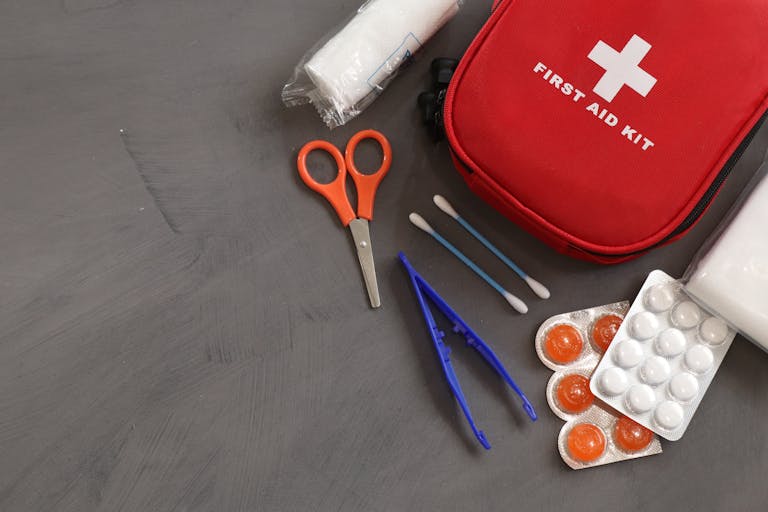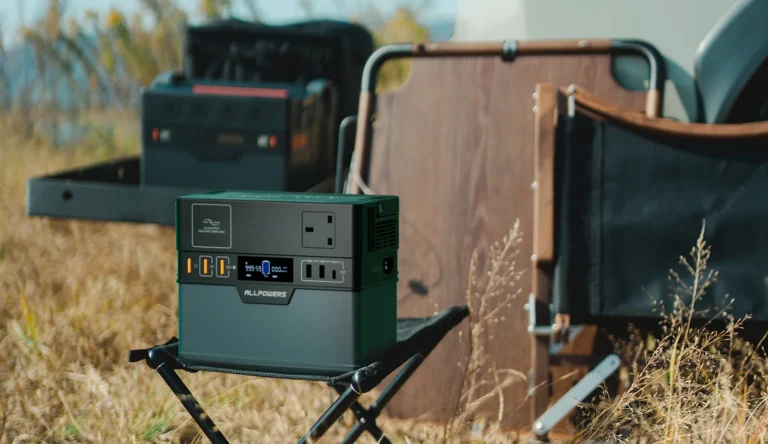Birmingham’s Bin Crisis: What It Means for You – and How to Stay Prepared

In recent weeks, Birmingham has been facing a growing waste emergency. With bin collections disrupted across the city, rubbish is piling up on the streets, causing concern for residents and health officials alike.
The BBC and Birmingham Mail have both reported on the mounting risks — from rats and flies to fire hazards and public health issues. It’s a clear example of how fragile our everyday services can be when stretched too far.
But Birmingham isn’t the only place this could happen. Whether it’s due to strike action, funding cuts, or infrastructure failures, any town or city could suddenly find itself in the same boat.
So, what can we do if our own bin collections suddenly stop? How do we keep our homes safe, clean, and as hygienic as possible until things are back to normal?
Let’s take a look at some simple, practical steps to help you stay prepared and manage waste responsibly when the bins aren’t being emptied.
Why Overflowing Rubbish is a Real Problem
It’s easy to think, “It’s just a bit of rubbish – how bad can it be?” But when bins aren’t emptied for days or even weeks, things can get out of hand quickly.
- Rats and other pests: Food waste attracts vermin – and once they find a source, they won’t be leaving any time soon.
- Health concerns: Rotting waste can harbour harmful bacteria, which is particularly risky if you’ve got children or pets.
- Smell and air quality: Especially in warmer weather, the stench from overflowing bins can make being outdoors (or even having your windows open) pretty unpleasant.
- Fire hazards: Piles of dry rubbish like paper and cardboard left outside can become a fire risk, whether by accident or arson.
In short – it’s not just annoying. It’s potentially dangerous.
So, What Can You Do?
Until normal collections are back on track, it’s all about managing what you can at home. Here are some practical ways to keep on top of your rubbish during the crisis.
1. Compost What You Can

If you’ve got a bit of space, setting up a compost bin is a great way to reduce the amount of food waste going into your general rubbish.
What you can compost:
- Vegetable and fruit peelings
- Coffee grounds and tea bags (check they’re plastic-free)
- Eggshells
- Garden waste like grass cuttings or dead leaves
Avoid cooked food, meat, fish, or dairy – those will attract pests and won’t break down properly.
If you don’t have a garden, there are small kitchen composters with filters that help keep smells down.
2. Burn Paper, Wood and Cardboard Safely

Got a lot of paper, packaging, or cardboard building up? You can burn it – but do it safely and legally.
- Only burn clean, dry paper, card or wood – no glossy magazines, plastic coatings, or anything treated with chemicals.
- Use a garden incinerator bin or fire pit, and never leave it unattended.
- Check local rules – some areas have restrictions, especially if you’re in a smoke control zone.
It’s a handy way to reduce volume, but not something to overdo – be considerate of neighbours, and never burn plastics or wet rubbish.
3. Keep Extra Bin Bags Handy
This one’s simple but essential: have a good stash of heavy-duty bin bags. Thicker bags are less likely to split, reducing the chance of leaks, smells, or attracting flies. If your local shop only stocks thin or flimsy bags, it’s worth ordering a more robust type online — garden refuse sacks or contractor-grade bags are ideal.
Double-bag food waste if it’s going to sit for more than a day or two. It’ll help contain smells and slow down decomposition. It also gives you time to sort and manage things more safely.
But what happens when your wheelie bin fills up?
It’s worth identifying a backup storage spot away from your main living space — somewhere covered, secure, and as cool as possible. Think:
- A shed
- Garage
- Alleyway with a lockable gate
- A heavy-duty storage bin or lidded outdoor container
The key is to avoid letting waste spill out onto the street, both to prevent attracting vermin and to avoid contributing to a wider public health issue. It also helps avoid fines or warnings from the council if bags are seen left on the pavement.
A bit of planning ahead — even just clearing a corner in a shed or under a tarp — means you’ll have a fallback option if your bin can’t be emptied for a few weeks.
4. Stop Animals Getting to Your Waste
If your bin’s already full and you’re having to store bags outside, do what you can to keep pests out.
- Secure your bin lid with a strap, bungee cord or even a brick.
- Store bags off the ground, on something like a wooden pallet.
- Cover loose bags with a bin lid, heavy-duty plastic container, or tarpaulin.
- Some people swear by placing coffee grounds or vinegar-soaked rags near bins to deter rats and foxes – worth a try!
5. Consider a Trip to the Tip or Teaming Up with Neighbours
If you’re able, taking your rubbish to the local tip (household waste recycling centre) can be a good way to keep on top of things. Check ahead for opening times and any restrictions, and be sure to separate recyclables if required.
It can also be helpful to chat with your neighbours and come up with a local plan. Keeping your street or shared spaces tidy might mean chipping in together — maybe someone has a van, a shared garage, or extra storage that can help for the short term.
Hiring a skip could be another option, especially if multiple households want to share the cost. Just bear in mind that during a crisis, a skip might attract rubbish from others in the area. If you go down this route, it might be worth keeping it covered or monitored to prevent misuse.
It’s About Being Ready – Not Panicking
No one wants to be dealing with overflowing bins and the smell of rotting rubbish. But a bit of preparation can go a long way.
Having a plan for managing your household waste – especially things like food scraps and excess packaging – means you’re not caught off guard if collections stop unexpectedly. Compost what you can, burn what’s safe, store the rest responsibly, and keep the pests out.
Let’s hope services bounce back quickly wherever the next disruption hits. But if they don’t, a calm, prepared response can make all the difference.
Have your own Thoughts? Leave a comment Below 🙂
A little disclosure: there are affiliate links on this website! That just means if you click on a link, find something you like and buy it, this site might receive financial benefit. Don’t worry, you won’t pay any extra – sometimes you might even get a discount. These links help to pay for the upkeep of the site.
Disclaimer: The content of this website is opinion and should never be considered as professional advice. Always consult a professional in the relevant areas.





